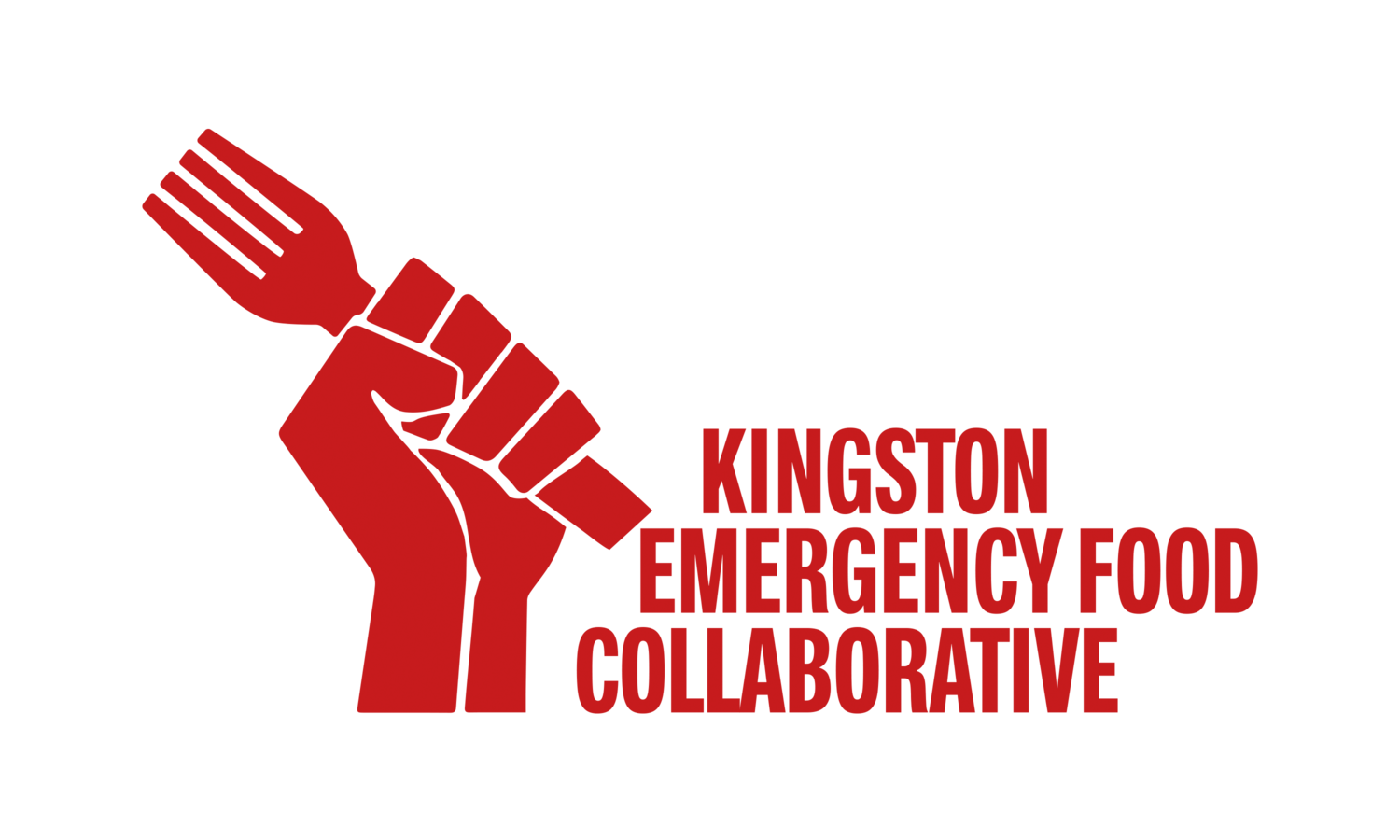Kingston Emergency Food Collaborative
by Melina Roise
Visit their website, learn more, & donate: Kingston Emergency Food Collaborative
As a part of COMMON GROUND’s commitment to educating, discussing, and impacting food politics, we are uplifting a series of grassroots organizations already making incredible impact in and around our community. This piece was based on an interview completed with Troy Ellen Dixon in December of 2020 with help from Professor Peter Klein’s Writing for Environmental Justice seminar.
Many large, government-sponsored food pantries focus efforts on food procurement and distribution, offering weekly pick-up hours and occasionally delivery services. Food pantries such as these create short-term solutions, but today have become a mode of survival and a staple of community services. The Kingston Emergency Food Collaborative, a direct service and systems change organization based out of Kingston, New York, functions differently through practicing multiple layers of food sovereignty work. While recognizing white supremacy, capitalism, and systemic racism as root issues of hunger that simply providing food can’t solve, KEFC aims to reform underlying issues of food insecurity in addition to feeding their communities directly.
The Kingston Emergency Food Collaborative continues direct service food access work while having conversations and initiatives surrounding deeper systems change, insisting that in order to learn and listen to what your community needs there must be people on the ground to have those conversations. In addition, the community needs to be directly fed and nourished in order to have the capacity and resiliency to enact deeper change.
Food access work often looks a-political. Even community members who abstain from voting and political conversations will drop non-perishable products off at their local food pantries during the holidays. Yes, it’s true, being well fed should not be a political act, and yet being hungry is. Targeting the root causes of hunger involves policy changes that directly target poverty and racism in our communities – like defunding the police, raising the minimum wage to $15 an hour, and providing free healthcare and transportation services. KEFC understands that white supremacy and systemic racism lay at the root of food insecurity, and these problems could be addressed better with living wages, stable housing, racial equity, and community support systems better than with donation-based food pantries, but in the meantime, we all need to be fed. And with the goal of long-term community food sovereignty, we need to be fed well, with culturally appropriate, affordable, local, and sustainable food.
Long term, KEFC aims to go “out of business.” Get involved with the Kingston Emergency Food Collaborative by signing up for a volunteer shift for food distribution, or to join their working groups with systems change work.
KEFC organizers and volunteers believe they should not be needed forever. Their goal ultimately reaches beyond emergency food distribution into the reformation of local food systems. To reach this goal their work goes beyond direct service and into foundational community improvements. Troy Ellen describes this as the difference between individual and organizational motivations: some are motivated by charity, giving in order to do something good, while others are motivated by solidarity, a more authentic form of community care based on making structural changes for the greater good (even if it may not make the most sense for you at a certain time). They accept charitable giving, “but that motivation shouldn’t be the reason to be giving,” she says, “it should be about solidarity and providing care for your community. A rising tide lifts all boats.”
A necessary component of doing what is best for the community is listening to and engaging with what community members need and say. KEFC looks to get people who are directly impacted by the issue involved in creating the solution for themselves, working in a non-hierarchical and collaborative structure. As an example, Troy Ellen explained that they always translate their fliers and publishings into Spanish in order to reach the broader non-English speaking community of Kingston. The KEFC goes further for community input by asking if people need an interpreter and continuously asking for feedback.
Having access to computers and internet services, transportation, and the ability to speak and read English are privileges that not all experience. The KEFC aims to empower individuals and invite all into creating a solution. “Part of it is needing to destigmatize the need for food,” Dixon told me. Many charity systems make people who search for food feel “less-than, or other, at best,” even when millions of people each day feed themselves this way. Mutual aid systems like the collaborative, community fridge projects, and grassroots policy change work differently. Working off the system of “sometimes you need something, something you can give something,” community support networks empower everyone to act and destigmatize the need for help.

Reply